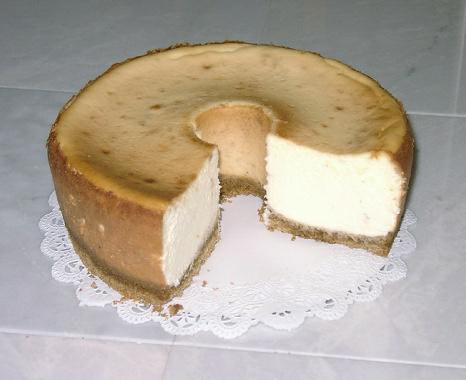A local radio personality whom I like and follow on Twitter, asked the question. This got me thinking probably more than most people. After all, I am a foodie and I also hate to be wrong. So, the geek in me came home and decided to research the answer and come up with my own VERY educated conclusion.
What is a cake?
Well, it’s fairly to easy to tell a bread from a cake. But. defining a cake is more cumbersome than you think. Cake is usually sweet and often baked. Note usually & often – not always the case. Cakes normally combine some kind of flour, a sweetening agent (commonly sugar), some sort of binding agent which is generally egg, fats (while usually butter, oil, or shortening can also be applesauce for a healthier version), a liquid such as milk or juice, flavorings, and some sort of leavening agent like yeast or baking powder (although many cakes do lack these and rely solely on air bubbles in the dough to expand and make the cake rise).
Now, cakes are broadly divided into several categories, based mainly on ingredients and cooking techniques. There are yeast cakes, sponge cakes, butter cakes, ruske-kape, and yes, cheesecake. There are sub categories such as coffeecakes or fruitcakes, too.
So “cake” covers a lot it seems. Let’s look to more of a straight definition.
Merriam-Webster states :
Cake – Pronunciation: ˈkāk. noun. Etymology: Middle English, from Old Norse kaka; akin to Old High German kuocho cake. Date: 13th century
1 a: a breadlike food made from a dough or batter that is usually fried or baked in small flat shapes and is often unleavened b : a sweet baked food made from a dough or thick batter usually containing flour and sugar and often shortening, eggs, and a raising agent (as baking powder) c : a flattened usually round mass of food that is baked or fried
2 a : a block of compacted or congealed matter b : a hard or brittle layer or deposit
3 : something easily done
Dear, sweet Merriam-Webster has this:
cheese·cake. Pronunciation: –ˌkāk. Function: noun. Date: 15th century.
1: a dessert consisting of a creamy filling usually containing cheese baked in a pastry or pressed-crumb shell
Back them, cheesecake was a cake. The name makes sense.
What about modern cheesecake? Modern cheesecakes use a soft cheese like cream cheese, marscapone, cottage cheese, or neufantel cheese along with suagr, vanilla, and most times, eggs. This makes a custard or custard-like base that gets poured into a pie-shell or a springform pan that has been prepared with a cracker/butter combo for a crust. Many types of cheesecake are essentially custards, which can lead a novice baker to overcook them, expecting them to behave like true cakes.” That statement flasehes 2 things to me personally. (1) I know custard is not cake and (2) expecting them to act LIKE a cake means they are NOT a cake
———-
My final educated answer:
Back in 300 or so AD, cheesecake was in fact a cake. But modern cheesecake is a totally different item. The fact that cheesecake is a pastry-like shell filled with a custard, means today’s evocation of the word cheesecake is a pie.
Would you say my Banana Cream pie is a cake? It is a graham cracker crust, layered with bananas, then a custard poured on top. No one would call that a cake. So if that is a pie, so is cheesecake.
My final answer. Was a cake, now a pie.



